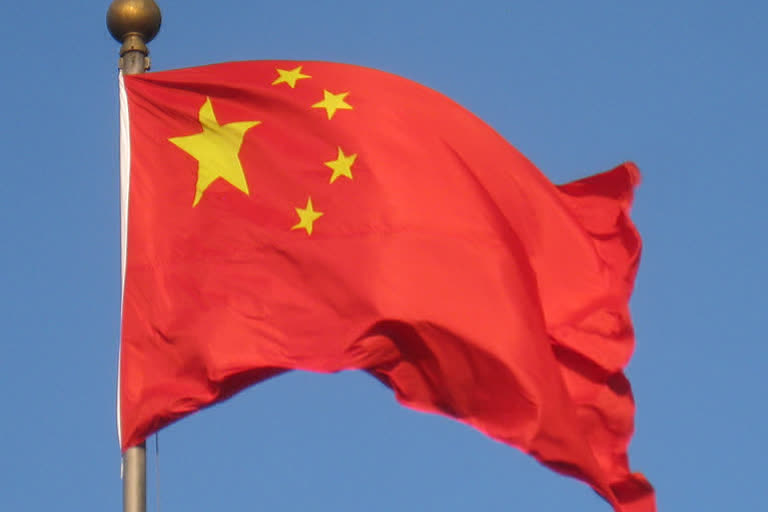New Delhi: Where on one hand, the whole world is facing a dangerous wave of the pandemic, there’s something brewing in China’s vaccine strategy.
Coming to Nepal’s rescue as the Himalayan nation scuttles to secure vaccines amid the surge in Covid-19 cases, China in May had announced a grant of 1 million doses of COVID-19 vaccines for Nepal.
However, getting access to Chinese vaccines is going to be a tough task for the Himalayan nation as Chinese firms have insisted that Nepal sign a non-disclosure agreement for commercial procurement of vaccines, which will make it worse for Nepal.
Read: Fauci adds pressure on China to come clean on possible Covid lab leak in Wuhan
Experts believe that by insisting Nepal sign such non-disclosure agreements, China would try to take advantage of the situation by providing vaccines in place of getting political, diplomatic or even economic benefit out of it.
Speaking to ETV Bharat over the matter, former ambassador Jitendra Tripathi said, "Chinese vaccine diplomacy has hit Nepal with a stick and at a time when the whole world is reeling under the terror of covid-19 and especially when India is under severe pressure of the pandemic and vaccine unavailability, China has thought it quite opportune to offer the vaccine to Nepal. China wants unrestricted entry and free play in Nepali territory".
Commenting on the issue, Professor Harsh V Pant, Director, Studies and Head of the strategic studies programme at ORF, said, "China has a record of doing things where, different kinds of costs are attached, seemingly humanitarian efforts as well. China, therefore, is insisting that countries like Nepal sign non-disclosure agreements because certainly, there will be clauses where China would try to take advantage of the situation by providing vaccines in place of getting political, diplomatic or even economic benefits out of this".
Read: China stands with India, will provide full support to combat 2nd wave, says FM Wang Yi
When asked what could be the possible reason behind China insisting Nepal sign a non-disclosure agreement, former diplomat Tripathi added, "My hunch is that Chinese firms must be having some clause or some hidden agenda behind it because if Nepal signs the non-disclosure agreement and since Nepal is desperate to get vaccines, Chinese firms will dictate its terms and conditions and prices."
"And there is every possibility that the prices will be not in cash but 'in kind'. Perhaps, by doing this, China will ask Nepal to make some concessions and give PLA (People’s Liberation Army) someplace to be stationed or carry out its activities or intelligence sharing on India or against India. Therefore, these factors are very crucial for China, Nepal and India", he explained.
Nepal should linger on the issue as far as possible and by that time, India will be sufficient enough to provide vaccines. Meanwhile, vaccines will also come from countries like Russia and the United States, Tripathi further suggested.
Read: China reports human infection of H10N3 avian influenza
Tripathi said that according to the rules of Nepal, non-disclosure agreements are signed only when the government decides to procure defence-related materials, and details of all other procurement must be disclosed as per the existing law in Nepal.
Therefore, the major issue in procuring vaccines under such a secret agreement is that Nepal currently does not have any guidelines to sign such deals for public procurement.
What is a non-disclosure agreement?
A non-disclosure agreement is a legally binding contract establishing an off-record relationship. If Nepal signs a non-disclosure agreement with China, which would mean confidentiality and either of the two parties cannot disclose details, including the price.
Read: China jails blogger for remarks on Galwan clash
"It is very likely that in the long term, the cost for countries like Nepal can be prohibitively expensive much like what Belt and Road initiative has done to countries by making them fall under debt trap. This is China’s standard modus vivendi and I believe China is trying to use the crisis as an opportunity to expand its presence in South Asia because it sees that India is on a back foot and neighbouring countries are seeking vaccines. China will do everything to take advantage of the situation", Professor Pant underlined.
Pant said that it is time for America to rise to the occasion in the region and make sure that countries in South Asia, the Indian Ocean region and small countries with great vulnerabilities do not fall prey to Chinese tactics of using the crisis for geopolitical purposes.
He opined that to counter Chinese aggression, the Quad countries should seriously prioritize the need to supply vaccine, which is part of the agenda of this year’s Quad summit.
Most importantly, Nepal had agreed to buy the 2 million doses from Serum at $4 per dose and the deal did not involve a non-disclosure agreement.
Also as the Chinese tried to enforce one-sided deals, Bangladesh rejected the Chinese vaccines and obtained India’s Covishield doses earlier.
Read: Nepal receives Covid aid from UAE and Tibet Autonomous Region


